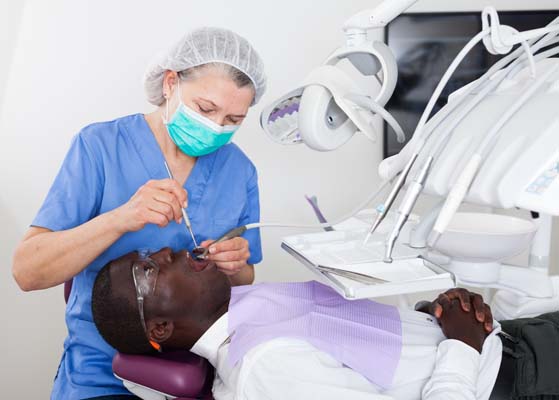Why Regular Checkups At Animal Hospitals Protect Pets Long Term

Regular checkups at animal hospitals are crucial for your pet’s long-term health. You want to keep your beloved animal companion safe and happy. Seeing a veterinarian in Oakville can make a big difference. They can spot problems before they become serious. Early treatment means less pain and fewer complications. When you make regular visits, you build trust with the vet. This trust helps when your pet feels anxious or scared. Consistent care also ensures your pet gets vaccines and dental checkups. These prevent illness and keep your pet’s teeth healthy. Regular checkups include weight monitoring and dietary advice. This helps maintain a healthy weight, reducing the risk of diabetes or arthritis. You want to avoid these painful conditions. Choose regular checkups to give your pet a longer, healthier life. Connect with an experienced veterinarian in Oakville. Your pet deserves the compassionate care that will protect them for years.
Identifying Health Issues Early
Early detection of health issues is one of the most important benefits of regular checkups. Vets can catch conditions like heart disease, kidney issues, or infections in their early stages. The earlier a problem is found, the easier it is to treat. Treatments are more effective and often less costly. A study by the American Veterinary Medical Association highlights the importance of routine veterinary care in increasing the lifespan of pets.
Regular Vaccinations and Disease Prevention
Vaccines protect pets from diseases. Rabies, distemper, and parvovirus are just a few examples. Visiting the vet ensures these vaccines are up-to-date. Vaccinations not only protect your pet but also other animals and people. An unvaccinated pet can be a risk to others. Regular checkups also include tests for parasites like fleas, ticks, and worms. These pests can cause discomfort and health issues. Prevention keeps your pet and home free from infestations.
Monitoring Weight and Nutrition
Weight is crucial to your pet’s health. Obesity in pets can lead to diabetes, heart disease, and joint problems. Regular visits help monitor weight changes. Vets provide valuable dietary advice to keep your pet lean and healthy. They suggest portion sizes and food types suited to your pet’s age and activity level. This advice can prevent obesity-related conditions and promote a long, active life.
Benefits of Regular Checkups
| Benefit | Description |
|---|---|
| Early Detection | Identifies issues before they become serious. |
| Vaccinations | Prevents life-threatening diseases. |
| Weight Monitoring | Prevents obesity-related diseases. |
| Dental Care | Prevents dental disease and pain. |
| Parasite Control | Keeps pets and homes free from infestations. |
Dental Checkups
Dental health is often overlooked. However, it is vital for your pet’s well-being. Regular dental checkups prevent tartar buildup, gum disease, and tooth decay. Oral health affects overall health. Bacteria from infections in the mouth can spread to other organs. This causes severe complications. Consistent dental care prevents these issues, ensuring your pet stays healthy and comfortable.
Emotional and Behavioral Health
Regular checkups can also benefit your pet’s emotional and behavioral health. Stress and anxiety in pets often show through unruly behavior or health issues. By building a relationship with their vet, pets feel more comfortable during visits. This comfort reduces stress and can improve your pet’s overall behavior. A trusted vet can also provide guidance on behavioral issues.
Conclusion
Regular checkups play a huge role in your pet’s long-term health. They help in detecting problems early, ensure vaccinations are current, monitor weight, and maintain dental health. These checkups also support emotional well-being. Choosing regular veterinary care is choosing a healthier, happier life for your pet. Trust in a compassionate, skilled veterinarian. For more information on the benefits of regular pet checkups and how they improve health, visit the Centers for Disease Control and Prevention. Doing so is a proactive step toward safeguarding your pet’s future.





